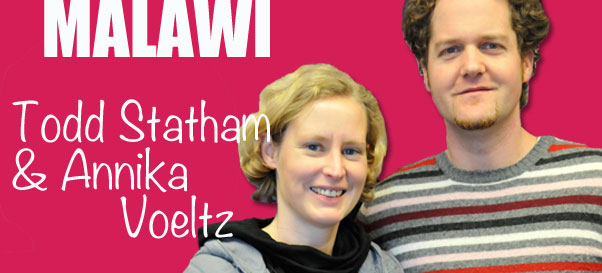 Our four-year old son first spotted the snake from where he was sitting on the living room floor. “Daddy, there’s a dead snake on the khonde (porch),” Mio called out nonchalantly, then returned to his Duplo blocks. I wasn’t so nonchalant. Snakes are not to be taken lightly in this part of the world, even when reported dead. Cobras, vipers, adders and mambas all haunt our neighbourhood. They are highly venomous, sneaky, and sometimes lethal. So I came running. The snake was a small black mamba-the most deadly snake in Africa. But it wasn’t dead, only lying dead still, having cleverly wedged itself under the open door. I grabbed a hockey stick and tried to lever out the 40 cm long mamba from his hiding place. It wasn’t easy. ”Now the snake was the cleverest of all the animals the LORD God had made” (Genesis 3). After a few tries, I manage to poke the snake from under our door, and with my best wristshot, flicked him onto the lawn. Our three dogs pounced and the black mamba was now really dead.
Our four-year old son first spotted the snake from where he was sitting on the living room floor. “Daddy, there’s a dead snake on the khonde (porch),” Mio called out nonchalantly, then returned to his Duplo blocks. I wasn’t so nonchalant. Snakes are not to be taken lightly in this part of the world, even when reported dead. Cobras, vipers, adders and mambas all haunt our neighbourhood. They are highly venomous, sneaky, and sometimes lethal. So I came running. The snake was a small black mamba-the most deadly snake in Africa. But it wasn’t dead, only lying dead still, having cleverly wedged itself under the open door. I grabbed a hockey stick and tried to lever out the 40 cm long mamba from his hiding place. It wasn’t easy. ”Now the snake was the cleverest of all the animals the LORD God had made” (Genesis 3). After a few tries, I manage to poke the snake from under our door, and with my best wristshot, flicked him onto the lawn. Our three dogs pounced and the black mamba was now really dead.

Not everything in our garden is dangerous. Sophia found a lovely chameleon last month
Poisonous snakes, marauding baboons, army ants, and the occasional swarm of killer bees are some of the dangers we experience in our garden in Malawi. On occasion, friends from back home ask us, with a touch of barely concealed disapproval, if it crosses our minds that we are putting our children at risk by living in perilous central Africa. After this latest battle with a snake in the yard, I was beginning to wonder myself. But then a conversation with our night guard, Bernard (who guards our house from nighttime burglars, not baboons, etc…) put some things in perspective. The conversation went something like this.
Todd: “Evening Bernard. The dogs killed a mamba this afternoon over there by the khonde. Could you please keep an eye out tonight just in case there’s a nest of them somewhere? Man, we hate those things! We just can’t get used to having poisonous snakes near the house.”
Bernard: “Yes, sir. But don’t you have mambas in Canada?”
T: “No way. And no killer bees either!”
B: “Then you are very lucky, sir. So there are no dangerous animals in your country?”
T (thinking nostalgically of his home province of BC): “Of course not!”
T (thinking a little bit more realistically): “Well, I guess we do have wolves. And cougars. And bears. Come to think of it, lots of bears.”
B (with a look of horror): “Bears? Then I’m very sorry. I’ve seen pictures of bears in my schoolbooks when I was a child. They are very big indeed.”
T: “No need to be sorry. Bears don’t attack people.”
T (again thinking a little more realistically): “….Well, at least not very often.”
B: “I’m very sorry, sir, I would not want to live in Canada if there are bears there. I would rather have snakes.”
T (somewhat indignant): “What?! But snakes are poisonous.”
B: “Yes, but snakes run away from us. But you must run away from bears, yes? And can you kill a bear just by throwing rocks at them as we do with snakes?”
T (bested by B’s argument). “Um, no, I guess not….”

Another of Malawi’s dangerous animals–fortunately limited to the rivers! We spotted this croc in the Shire River a few weeks ago
Living in another culture or country is to have your perspective constantly turned upside down and sideways. The unnerving proximity of poisonous snakes to my family is for Bernard no big deal—just part and parcel of normal life in Malawi. On the other hand, the notion of living in a bear-infested province like BC, which has never once struck me as strange, for him is to clearly abandon all common sense. We grow up to think something is “normal”—but if we happen to grow up elsewhere, it might be anything but. I guess any immigrant to Canada could have told me that. But for me, a born and bred Canadian, it takes living in another culture to realize that what I assume to be “just the way it is” is not the way it is for someone from another culture. And good ol’ “common sense” for one group isn’t always the common to other people.
So what is “normal”? It’s a question I’ve come to ask myself a lot!
Sometimes this question amuses me. Like the time I preached out in a village congregation. I tripped over my sermon at the sight of the half dozen or so bare-breasted women in the pews. All the while that these women were suckling infants, they were tugging their skirts down to ensure that their knees aren’t exposed-for here it’s showing off your legs that’s immodest and not the other way around!
What is normal?
Sometimes this question puzzles me. Like when my students peer behind everyday calamities and find at work the hand of the Devil and his minions, who seek to harm God’s people. This is fairly normal thinking here (and it’s pretty normal in Bible too). So when and why did we in the West start thinking that “common sense” only lets us believe what we can see with our eyes?
What is normal?
Sometimes this question infuriates me. Like how it can be considered normal in one culture for a family to own two cars, three computers, and monster sized refrigerator crammed with food while a normal family in another country lives in a hut, eats corn meal and beans, and lives off less than 2 US dollars per day.

It’s all about perspective–following elephants in Majete Park
As my own perspective about “the way things are” has been regularly overthrown the past few years, I’ve come to notice how often Jesus challenged his disciples’ assumptions about what is “normal”. “You have heard it said” Jesus likes to say to them, “but I tell you…” In other words, prepare to have your perspective twisted right way round! Common sense says that important and valuable folks should be first in line to enter the kingdom of God, but Jesus overrules: “I tell you, unless you become as a little child you will not enter the kingdom of God”. Or when Jesus travels incognito with two men on the road to Emmaus (Luke 24), who are despairing because “they had hoped Jesus of Nazareth was the one who was going to redeem Israel.” They already knew what sort of Messiah to expect. ”Jesus said to them, ‘How foolish you are…Did not the Christ have to suffer these things and then enter his glory?’ And beginning with Moses and all the prophets he explained to them what was said concerning himself.”
Living in another culture or country is to have your perspective constantly turned upside down and sideways. So maybe we who are “born from above” (John 3) shouldn’t be surprised when what our Canadian culture tells us is “normal” or “just the way it is” gets overturned by He whose kingdom is not of this world.

Zomba Plateau April 2013: We were delighted to have a visit from the Associate Secretary for International Ministries, Glynis Williams. The PCC’s director for communications, Barb Summers, was also visiting (and took the picture, in fact).


